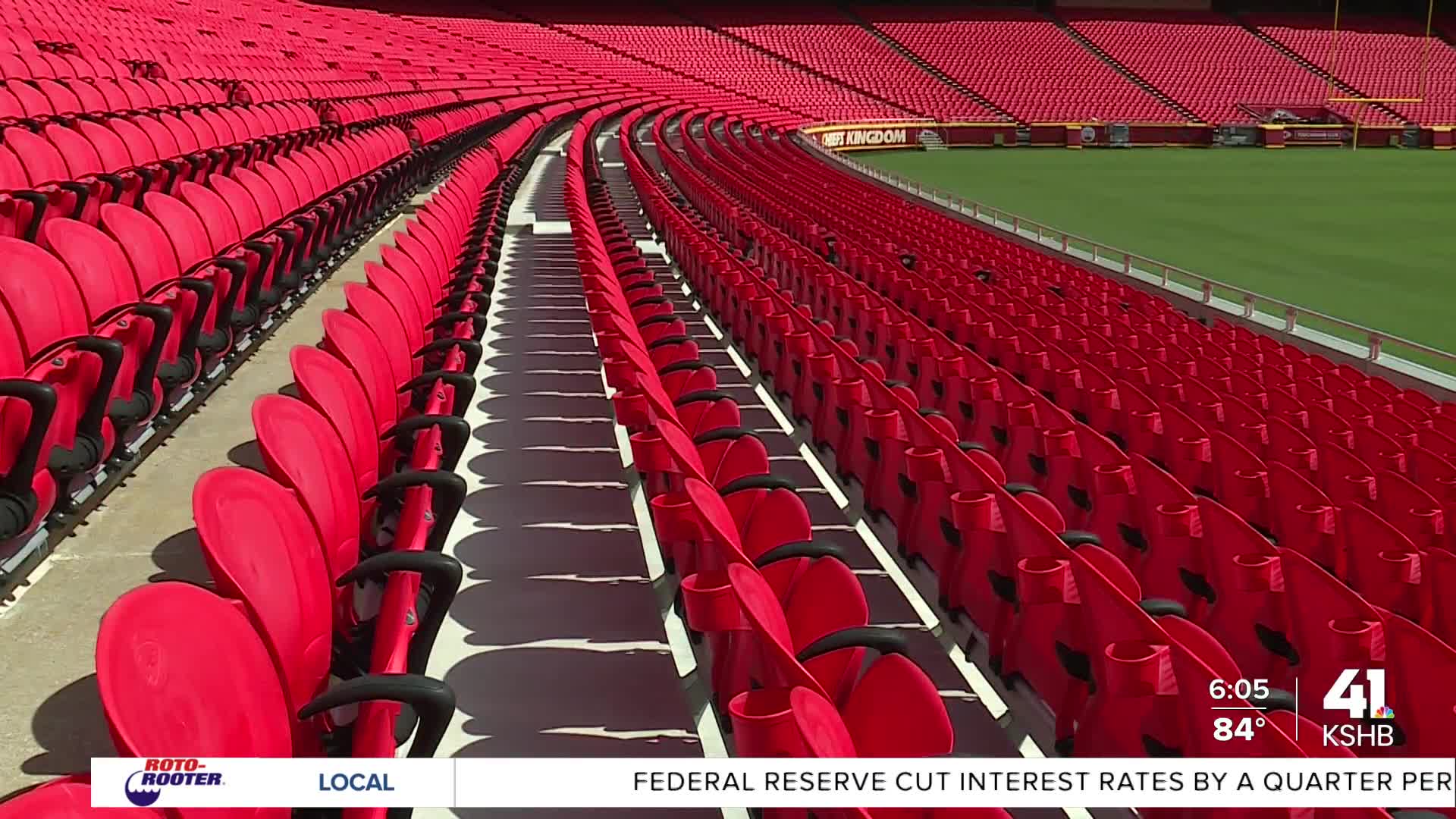KSHB 41 reporter Tod Palmer covers sports business and eastern Jackson County. Share your story idea with Tod.
—
When the Missouri legislature allocated $50 million toward FIFA World Cup 26 efforts in May 2023, the bulk — $42.5 million — was earmarked to help get GEHA Field at Arrowhead Stadium ready.
With two of five phases now complete, KSHB 41 has obtained documents that detail the money has been spent so far — more than $19.6 million — and what work remains.
During the second phase of the project, which was completed between Chiefs seasons, the club removed 3,000 seats along the visiting sideline and replaced them with modular, removable seating.
RELATED | How seating changes at Arrowhead could make Chiefs games even louder
The changes are necessary to accommodate the wider and perfectly leveled playing surface FIFA requires for next summer’s six World Cup games, including two knockout games.
According to invoices submitted for the project, most of the taxpayer money paid out so far went to general contractor Turner Construction, which has received more than $17.1 million through the Sept. 16 batch of receipts.
Populous, a world-renowned Kansas City-based architecture firm, has received more than $1.73 million so far and serves as the construction administrator for renovation.
But that leaves another $23.5 million earmarked for the final three phases.
After the 2025 Chiefs season ends, the temporary seats in place for football season will be taken out again and work will begin on the field, which will impact the schedule once again at Arrowhead.
“The quality of the playing surface is of the highest priority,” Chiefs Executive Vice President of Operations and Events Matt Kenny said. “We'll need enough time to do that, which means no concerts during next summer. … We'll also raise, as opposed to lower (the playing surface), so that crown, as we call it, in the center of the pitch, the football field, will actually go away because you raised the sides.”
Kansas City Stadium — as the unbranded Arrowhead will be known during the World Cup — also has to be stripped of current branding.
“They are required to provide what FIFA calls a clean site,” KC2026 CEO Pam Kramer said. “Any commercial branding that is not a FIFA commercial partner will need to be covered for the World Cup inside the stadium, so they (the Chiefs) are working with FIFA right now on those — understanding and developing the clean-site look, and what the details of that will be.”
It’s a huge undertaking.
“FIFA and their subcontractors will come in and do a number of things related to media, broadcasting, signage and things of that nature,” Kenny said.
Kramer added, “How much signage is at Arrowhead, right? It's just one of the requirements that FIFA has for all host cities — not just Arrowhead, but all host cities — in delivering that stadium.”
After the final World Cup match in Kansas City, a quarterfinal on July 11, the Chiefs must revert all the branding, re-install the modular seats and restore the crown, or midfield hump that assists with drainage, before another NFL season gets rolling.
“That's a tight window for all the activity, because not not only do I have to prepare the pitch, you have to sort of unravel all of the FIFA elements that come through, but we're working with them and their subcontractors on that schedule,” Kenny said.
FIFA is aware that the Chiefs and other NFL teams need to be able to host preseason games within a few weeks of the soccer tournament ending.
“We'll hit the mark,” Kenny said.
The final phase of taxpayer-funded construction comes after the 2026 season, when the Chiefs remove the modular seats again and rebuild permanent concrete seating all over again.
KC2026, the nonprofit formed to deliver on the contractual obligations between the city and FIFA, received the other $7.5 million from the state legislature’s allocation two and a half years ago.
—





